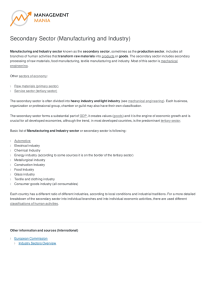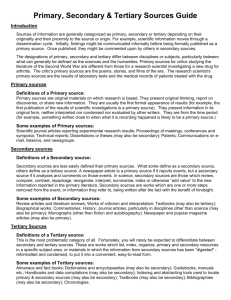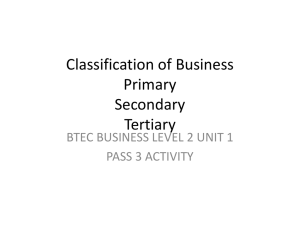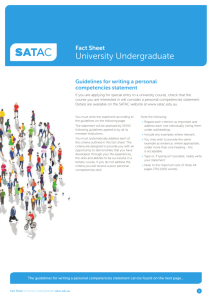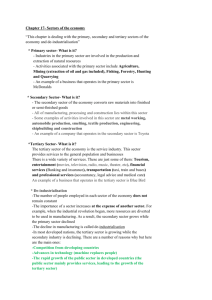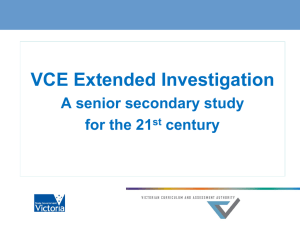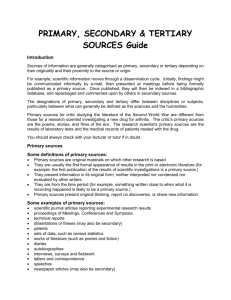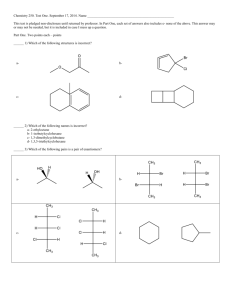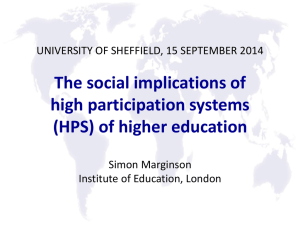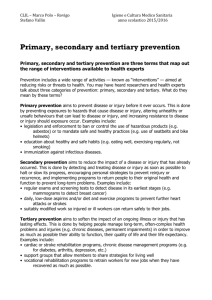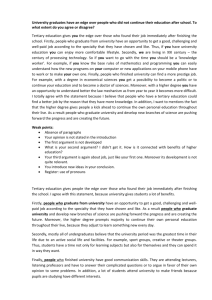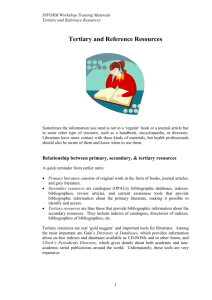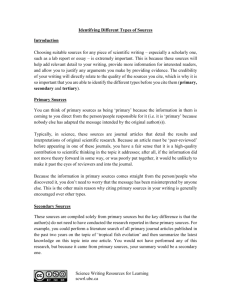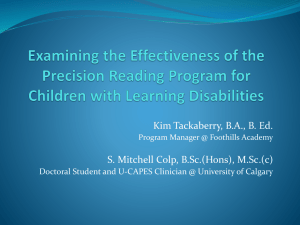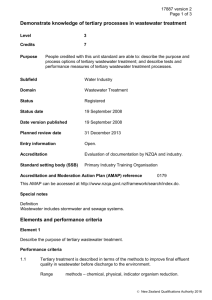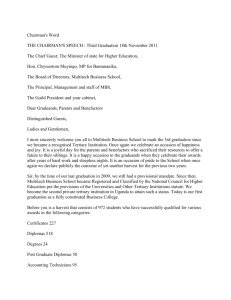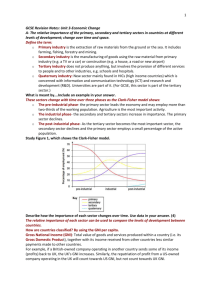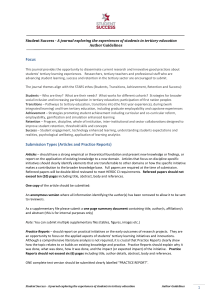Supporting Statements - University of Tasmania
advertisement
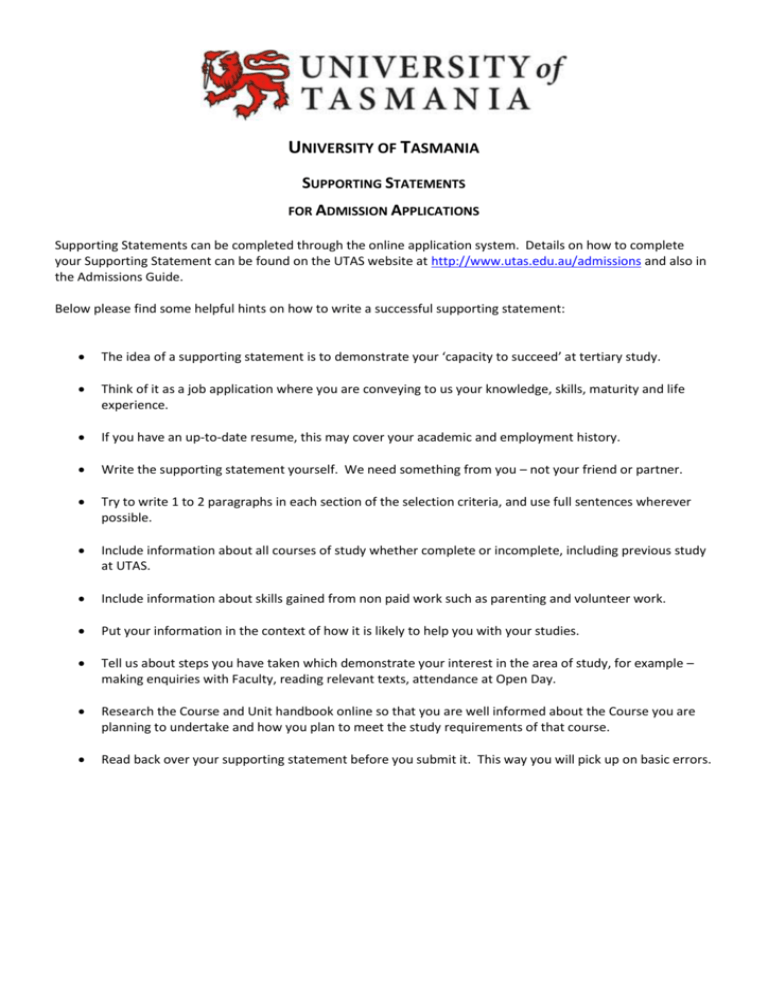
UNIVERSITY OF TASMANIA SUPPORTING STATEMENTS FOR ADMISSION APPLICATIONS Supporting Statements can be completed through the online application system. Details on how to complete your Supporting Statement can be found on the UTAS website at http://www.utas.edu.au/admissions and also in the Admissions Guide. Below please find some helpful hints on how to write a successful supporting statement: The idea of a supporting statement is to demonstrate your ‘capacity to succeed’ at tertiary study. Think of it as a job application where you are conveying to us your knowledge, skills, maturity and life experience. If you have an up-to-date resume, this may cover your academic and employment history. Write the supporting statement yourself. We need something from you – not your friend or partner. Try to write 1 to 2 paragraphs in each section of the selection criteria, and use full sentences wherever possible. Include information about all courses of study whether complete or incomplete, including previous study at UTAS. Include information about skills gained from non paid work such as parenting and volunteer work. Put your information in the context of how it is likely to help you with your studies. Tell us about steps you have taken which demonstrate your interest in the area of study, for example – making enquiries with Faculty, reading relevant texts, attendance at Open Day. Research the Course and Unit handbook online so that you are well informed about the Course you are planning to undertake and how you plan to meet the study requirements of that course. Read back over your supporting statement before you submit it. This way you will pick up on basic errors. A supporting statement allows you to meet the University's General Entry Requirements and to demonstrate that you have, through life experiences, the skills and abilities to be successful in a tertiary course. You will be assessed according to how well your written statement addresses all categories and associated indicators. Your statement of support needs to address: what you have done to prepare for tertiary study the reasons for choosing your preferred program of study your capacity for independent study the skills, knowledge and abilities you believe will help you succeed your communication skills sources of support you have or can put in place to enhance your success at university. Each of these criteria should be addressed individually. Be sure to provide specific examples of how you meet the criteria. Independent Learning Strategies Relates to your capacity for self-directed study. Demonstrated ability to prioritise tasks, manage time and meet deadlines. Demonstrated ability to work independently. Evidence of self-motivation. Evidence of development of personally effective study techniques. Evidence of awareness of the workload and time commitments inherent in tertiary study, the impact of tertiary study on personal lifestyle and of the financial resources required to complete the course. Interpersonal and Communication Skills Relates to your ability to communicate clearly, particularly when using written and oral means, and the ability to interact effectively with others. Demonstrated ability to write clearly, correctly and concisely. Evidence of capacity to express thoughts logically. Evidence of ability to interact effectively with others, including ability to work effectively as part of a team. Achievement and experience Relates to your experience, expertise and achievements which are indicative of your likely success in tertiary study. It also provides an opportunity to demonstrate your readiness to participate in the life of a tertiary institution and preparedness for a lifetime of learning. Any personal achievement that demonstrates ability, motivation or commitment. Attainment in formal and/or non-formal studies. Evidence of steps taken to gain study skills or improve skill levels. Completion of a formal tertiary preparation program. Completion of other studies, eg formal and informal training and short courses. Demonstrated ability to adjust or adapt to new situations. Demonstrated ability to consider new ideas and viewpoints. Skills and knowledge Relates to the skills and knowledge required to be successful in tertiary study. Demonstrated ability to collect, analyse and interpret information. Demonstrated problem-solving skills. Evidence of computer skills.
